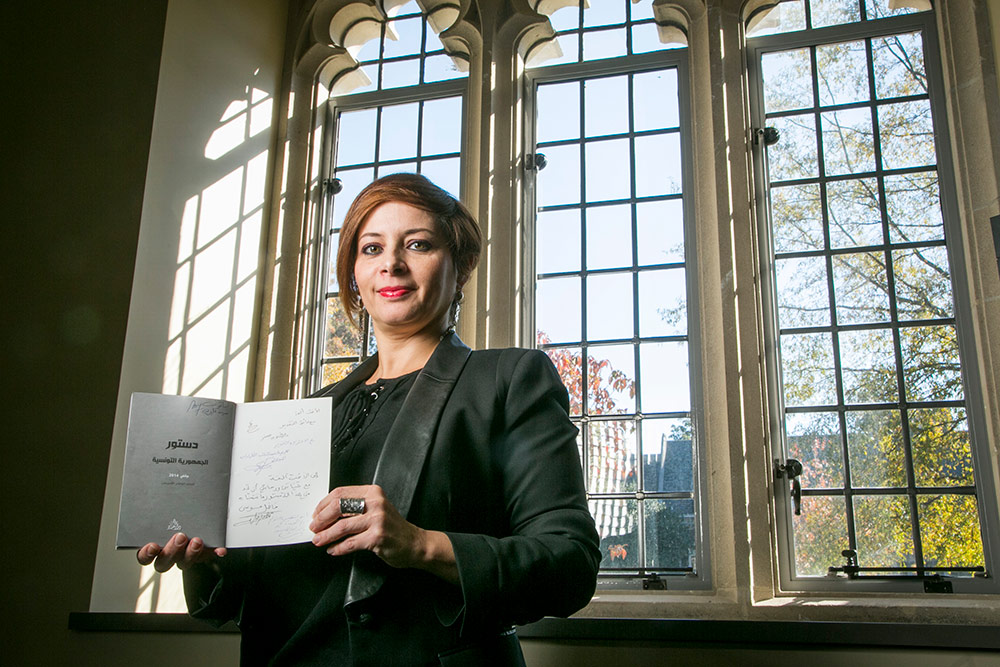New Program Connects Duke Community with Global Citizen Journalists
Tunisian human rights activist emblematic of how societies step up when journalists are shut down

As director of the Tunisia and Algeria office of Human Rights Watch in Tunis, Amna Guellali is an advocate for human rights and democracy in a country that has been rebuilding since the 2011 overturn of the authoritarian government of Ben Ali.
This fall, she spent two weeks at Duke as part of a new program to bring citizen journalists from the Middle East and North Africa to campus. Citizen journalists are individuals without journalistic training who either record or report on events when professional journalists are unable to. Citizen journalists have stepped up to fill the gap around the world -- often at risk to their own lives -- in the aftermath of numerous government blackouts on mainstream reporters.
Although Guellali came to Duke looking forward to working with scholars and students and learning more about the American academic system, she said she found her time at Duke to be rewarding in a number of unanticipated ways.
Among Guellali’s pleasant surprises at Duke was the seminar on an original, signed copy of the 2014 Tunisian constitution dedicated to Duke in the Rubenstein Library. In Professor Helen Solterer’s class, “The Franco-American History of Free Speech,” Guellali introduced students to the process through which the constitution was developed, connecting challenges faced in Tunisia to current political dynamics and debate in the United States.
A similar theme emerged during a visit to Durham Technical Community College, during which Guellali and students discussed the role the Truth and Dignity commissions and tribunals are playing in creating accountability in Tunisia, and how similar efforts might be useful in the United States.
“Sometimes we forget that many of the issues we are dealing with are globalized,” Guellali said. “Many of the challenges in North Africa are mirrored in the United States, France, and Europe as a whole. We’ve learned a lot in Tunisia about the role of advocacy and activism that could also be applied elsewhere.”
Solterer, who partnered with colleague Erdağ Göknar and Thomas DeGeorges to organize Guellali's residency at Duke, noted that Duke’s long tradition of engagement with international journalists has been especially valuable and meaningful for students in French and Francophone studies.

Amna Guellali holds the Tunisian constitution donated to the Rubenstein Library and signed by many Tunisian legislators. Photo by Megan Mendenhall/Duke Photography
Through the new Citizen Journalists in the Middle East and North Africa program, Solterer said she and colleagues aim to “broaden the definition of journalism to include people without formal journalistic training – colleagues like Amna Guellali – whose legal expertise and work at the International Criminal Court nevertheless has considerable reach and influence.” The program’s leaders plan to bring one or two citizen journalists to campus each year.
In addition to meeting with French, Arabic and Middle East classes, Guellali’s residency at Duke included presentations at the Law School, the Human Rights Center and the Franklin Humanities Institute.
The Citizen Journalists in the Middle East and North Africa program is a collaborative project of the Duke University Middle East Studies Center, the Duke Islamic Studies Center, and the Center for French and Francophone Studies, with support from Public Affairs and Government Relations and the Franklin Humanities Institute.